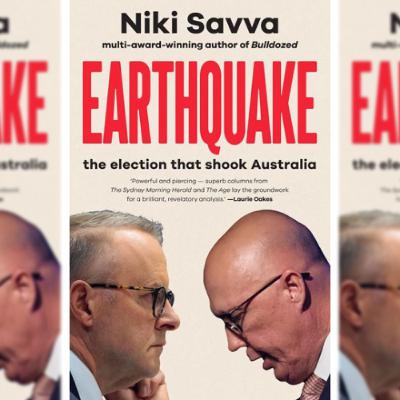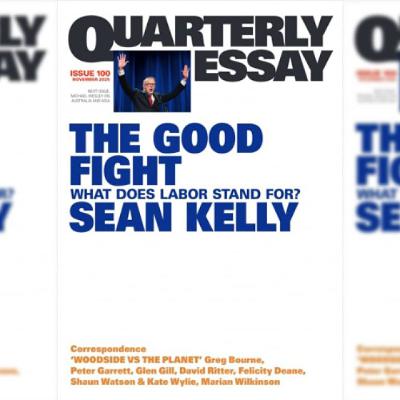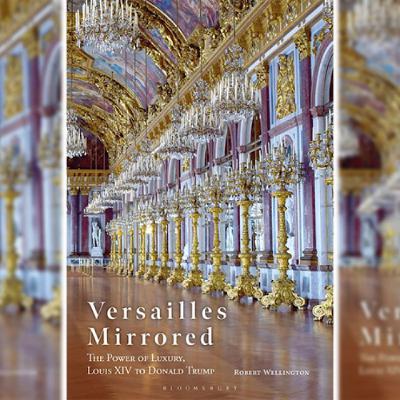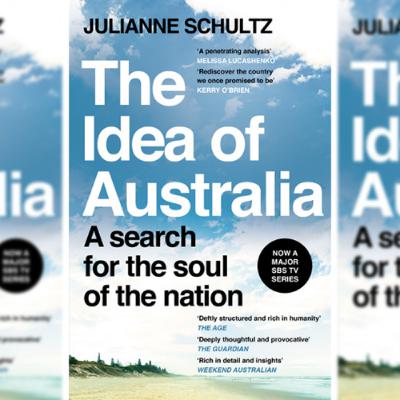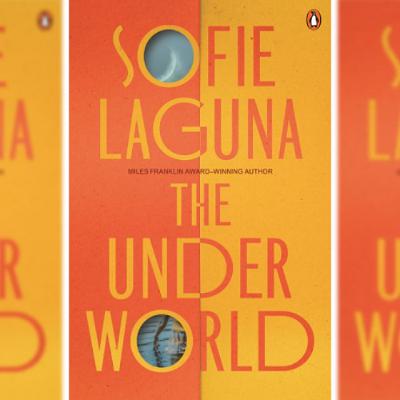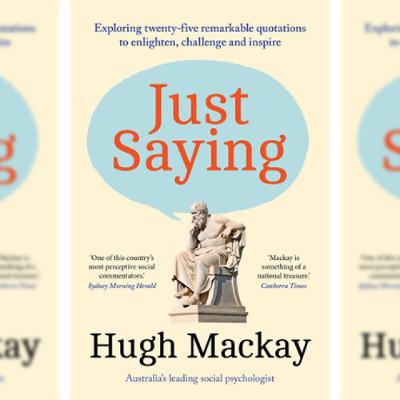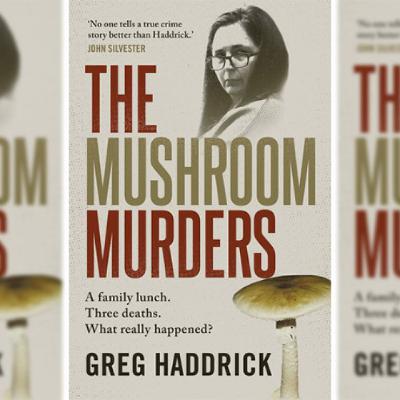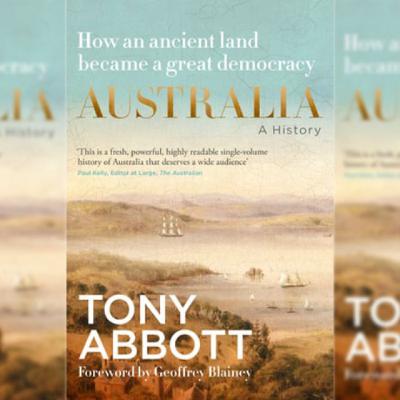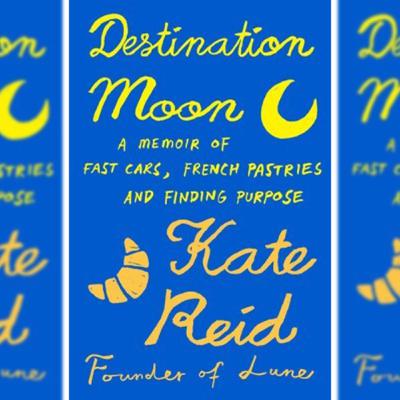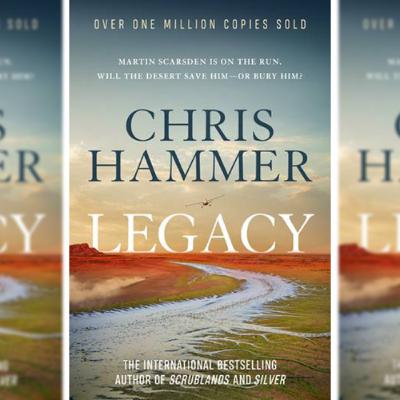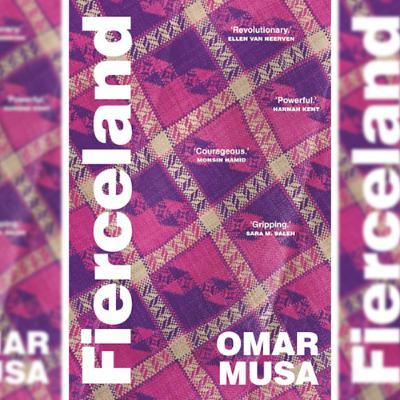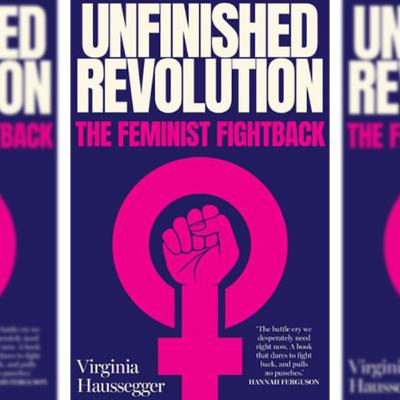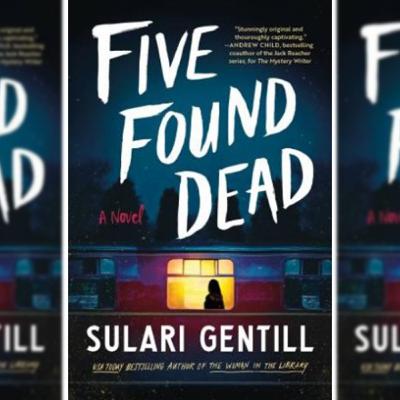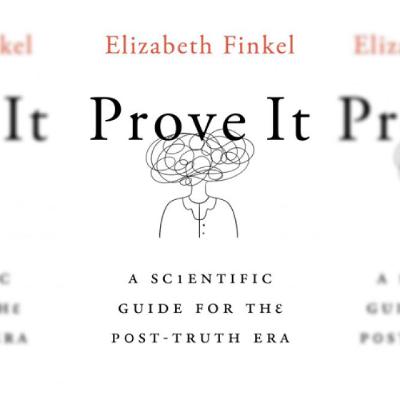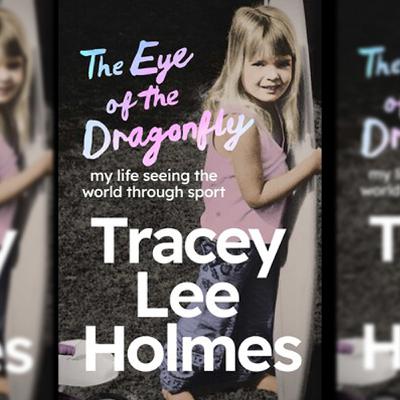Discover Experience ANU
Experience ANU

Experience ANU
Author: Experience ANU
Subscribed: 43Played: 215Subscribe
Share
© All rights reserved
Description
The ANU campus is always alive with plenty to see, hear and do.
Listen here to one of the many fascinating talks delivered by the world’s finest thinkers.
If you’re interested in finding out more about events at ANU then visit us at events.anu.edu.
Listen here to one of the many fascinating talks delivered by the world’s finest thinkers.
If you’re interested in finding out more about events at ANU then visit us at events.anu.edu.
185 Episodes
Reverse
Niki Savva was in conversation with Kerry -Anne Walsh on her new book Earthquake, the election that shook Australia, a collection of Niki Savva’s most groundbreaking columns from The Age and The Sydney Morning Herald, along with a riveting and deeply informed analysis of Australia’s epoch-making 2025 election.
Legendary Australian actor and author Bryan Brown was in conversation with Alex Sloan on his new novel The Hidden and his journey into writing, following the success of his debut novel The Drowning.
Sean Kelly was in conversation with Amy Remeikis on his new Quarterly Essay,The Good Fight. What Does Labor Stand For? In this subtle and brilliant essay, Kelly explores whether Labor is still up for the good fight
Robert Wellington was in conversation with Mathew Trinca on Roberts new book Versailles Mirrored. The Power of Luxury,Louis XIV to Donald Trump.
Why has Louis XIV's Palace of Versailles, defining symbol of hedonistic opulence in 17th-century France and synonymous with the notion of the divine right of kings, continued to shape the aesthetics of cultural capital in the centuries since his death?
In Versailles Mirrored, Robert Wellington tracks this enduring fascination with the Sun King's palace through eight case studies spanning the 17th to 21st centuries. The book demonstrates how the extravagant palace style began as a symbol of the state in the 17th century; how it was adopted by the nouveau riche to show off their financial success in the 19th century; and, remarkably, how that palace look returned to play a role in statecraft in the hands of US President Donald Trump. Wellington links the aristocratic architectural traditions of France, England, and Germany to North America through the lens of Versailles, French architecture, and the decorative arts.
Opening with a brief overview of the history of Versailles and the political and cultural motivations of its creation, subsequent chapters address aristocratic buildings in France and Germany built by the Sun King's contemporaries; historicism in the 19th century in Britain, Germany, and America; and the present day, with Trump's buildings and Château Louis XIV, known as the 'world's most expensive home', purchased by the Crown Prince of Saudi Arabia.In uncovering the motivations of those patrons, the book ultimately reveals why Versailles remains a powerful point of reference for those who wish to flaunt their social, cultural, and political capital.
Robert Wellington FSA is Associate Professor of Art History in the Centre for Art History and Art Theory, the Australian National University. He is an art historian with a special interest in the role of material culture in history making and cross-cultural exchange on one of the world's leading experts on the Palace of Versailles. He is a Fellow of the Society of Antiquaries, London and an expert judge on the ABCs upcoming Portrait Artist of the Year.
Dr Mathew Trinca Talalin AM FAHA is Professor of Museum Practice at the Australian National University. He is Chair of the Cultural Facilities Corporation in Canberra and sits on several arts and cultural sector boards and advisory bodies. Matthew was formerly Director of the National Museum of Australia between 2014 to 2024, and worked in senior roles in the Museum from 2003.
The vote of thanks was given by Helen Musa, arts editor of Canberra City news and convener of the Canberra Critics’ Circle.
Julianne Schultz was in conversation with Allan Behm on the updated edition of her bookThe Idea of AustraliaA search for the soul of the nation. Its publication complements the October SBS four-part series, hostedby Rachel Griffiths,inspired by, and based on, Julianne Schultz’s book.
What is the ‘idea of Australia’? What defines the soul of our nation? Are we an egalitarian, generous, outward-looking country? Or is Australia a place that has retreated into silence and denial about the past and become selfish, greedy and insular?
These were some of the questions Julianne Schultz set out to answer when she wrote the book, in part using the pandemic as an X-ray, to trace strengths and weaknesses in the stories we tell ourselves. As the executive producer of the Blackfella Films/SBS series two years later, and after the defeat of the Voice referendum, the questions still loomed.
A lifetime of watching Australia as a journalist, editor, academic and writer has given Julianne Schultz a unique platform from which to ask and answer these critical questions. The series explores these questions with a ruch montage of leading experts, family stories and a unique use of the contemporary archive. It doesn't flinch from the past, but points to a hopeful future.
Schultz came to realise that the idea of Australia is a contest between those who are imaginative, hopeful, altruistic and ambitious, and those who are defensive and inward-looking. She became convinced we need to acknowledge and better understand our past to make sense of our present and build a positive and inclusive future. She suggests what Australia could be: smart, compassionate, engaged, fair and informed.
This important, searing and compelling book explains us to ourselves and suggests ways Australia can realise her true potential. Urgent, inspiring and optimistic, The Idea of Australia presents the vision we need to fully appreciate our great strengths and crucial challenges.
Julianne Schultz AM FAHA FRSN is Professor Emerita of Humanities, Languages and Social Science, Griffith University. She was the publisher and founding editor of Griffith Review from 2003-2021 and Professor of Media and Culture in the Griffith Centre for Social and Cultural Research, Griffith University. She was the Chair of The Conversation Media Group from 2019 until 2023. She is a member of the board of the Sydney Writers Festival, writes a fortnightly column for The Guardian and is an acclaimed author of several books, including Reviving the Fourth Estate and Steel City Blues. She became a Member of the Order of Australia for services to journalism and the community in 2009, an honorary fellow of the Australian Academy of Humanities in 2010 and a Fellow of the Royal Society NSW in 2023.
Allan Behm, Senior Advisor, International & Security Affairs Program at the Australia Institute, Canberra, specialises in international and security policy development, political and security risk evaluation, policy analysis and development, and negotiating the policy/politics interface. Following a career spanning nearly 30 years in the Australian Public Service, he was Chief of Staff to Minister for Climate Change and Industry Greg Combet (2009 to 2013) and senior advisor to the Shadow Minister for Foreign Affairs, Senator Penny Wong (2017–19). He has a significant publishing record and is a respected commentator in both the electronic and print media.
The vote of thanks was given by Professor Kate Fullagar FAHA, Institute for Humanities and Social Sciences, Australian Catholic University.
Miles Franklin award-winning author Sofie Laguna was in conversation with Karen Viggers on her new novel The Underworld.
The Underworld is for every reader you know; thinkers, laughers, empaths, quirky folk, queer folk, nostalgists, the young and those getting on. Readers seeking a happy ending and anyone ready to feel. Anyone who has ever been fourteen.
Martha Mullins is a misfit. Her mother is glamorous, aloof and judgemental. Her father, mostly absent. Academic and shy, Martha finds herself fascinated by the underworld, a place she learns about in Roman mythology classes at school. To Martha, the underworld and its divine inhabitants provide a place of refuge, escape, imagination and desire. But Martha also finds joy in friendship. Connection. Intimacy. It’s Martha’s band of friends who show her the value in spontaneity, fun, laughter. Until things go wrong. How will Martha find her way in the world where she cannot be herself? Will she ever find a home for the love she feels?
The Underworld is a wondrous novel from an author who wields her considerable powers with assuredness and grace. Funny, brave, insightful and clever, Martha will break your heart – then mend it – many times over.
Sofie Laguna has written four novels for adults which have won numerous literary awards including the Miles Franklin Award, the Colin Roderick Award and the Indie Award. She has also been shortlisted for the Stella Prize, the ALS Gold Medal, the Voss Award, the Victorian Premier’s Literary Award and the Prime Minister’s Literary Award. Sofie’s many books for children have been published in the US and the UK and in translation in Europe and Asia, and been named Honour and Notable Books by the Children’s Book Council of Australia.
Karen Viggers is a Canberra writer, veterinarian and podcaster , who loves nature, bushwalking and animals. She is the author of five novels, which have been bestsellers in France as well as Australia: The Stranding, The Lightkeeper's Wife, The Grass Castle, The Orchardist's Daughter and Sidelines. She is co-host with Irma Gold of the Secrets From the Green Room podcast.
The vote of thanks was given by Sally Pryor, Features Editor of The Canberra Times.
Hugh Mackay was in conversation with Alex Sloan on his new book Just Saying. Exploring twenty-five remarkable quotations to enlighten, challenge and inspire, in which Hugh reflects on profound sayings, ancient and modern.
Warm, witty, wise – and occasionally challenging – Just Saying encapsulates Hugh Mackay's highly personal reflections on 25 quotations from some of the world's greatest thinkers and writers, from Confucius and Plato to Susan Sontag and Miles Franklin; from Samuel Johnson and Mary Wollstonecraft to Bertrand Russell and Gloria Steinem.
Interpreting our world and inspiring us to do better, Hugh explores themes ranging from kindness and humility to power and prejudice; from gender equality to ethnic diversity; from coping with change to the damage inflicted on ourselves by revenge, and the great gulf between propriety and virtue.
'Writing these reflections has felt a bit like the beginning of a conversation . . . now it's over to you.' Hugh Mackay
Hugh Mackay AO is a social psychologist and bestselling author. His non-fiction. including The Way We Are and The Kindness Revolution. covers social analysis, psychology, communication and ethics. He is also the author of nine novels. Hugh has had an over 60 year career in social research and was a weekly newspaper columnist for 25 years. He is a fellow of the Australian Psychological Society and the Royal Society of New South Wales and has been awarded honorary doctorates by five Australian universities. He is currently an honorary professor in the School of Medicine and Psychology at the Australian National University.
Alex Sloan AM is an award winning journalist, panellist, MC and commentator whose extensive media career spans 30 years, including 27 years with ABC Radio. Alex is a Director and Deputy Chair of Australia's think-tank, The Australia Institute and a Director of The Winston Churchill Memorial Trust. In 2017 Alex was named ACT Citizen of the Year and in 2019 was made a Member of the Order of Australia.
The vote of thanks was given by Frank Bongiorno AM, Professor of History ANU and President of the Council for the Humanities, Arts and Social Sciences
Award-winning author Greg Haddrick was in conversation with Michael Brissenden on Greg's new book The Mushroom Murders.
A family lunch. Three deaths. What really happened? The shocking story of a weekend lunch laced with a highly toxic mushroom, and a triple murder trial that gripped the world, shattered a family and gave a mother a life sentence.
On 29 July 2023, Erin Patterson hosted a family lunch at her home in the small regional Victorian town of Leongatha. She had invited her parents-in-law, Don and Gail Patterson, and Gail's sister, Heather Wilkinson, and her husband Ian. Erin made beef Wellington for her guests, individual beef eye fillets covered in mushroom paste, wrapped in pastry. The following day, all four guests were taken to hospital, and Heather, Gail and Don died. Ian Wilkinson barely survived. A toxicologist found traces of the highly poisonous death cap mushroom in the remains of the meal.
At first, it appeared to be a dreadful accident. As the police investigation continued, the evidence mounted, seeming to point one way. Yet Erin Patterson spun a web of lies, and steadfastly claimed she did not intend to harm her relatives.
Greg Haddrick tells the fascinating inside story of the dramatic murder trial, and the forensic evidence that convinced the jury to convict a suburban mother of a gruesome triple murder. With many details not previously revealed in the media, it is the compelling story of a troubled family and the world's most poisonous mushroom,.
Greg Haddrick is a Logie Award-winning screenwriter and film and television producer. His credits include the TV series Underbelly, Janet King, and Pine Gap, and he has also won seven AWGIE Awards as a writer, three AFI Awards as a producer, and an International Emmy Award nomination as a writer and producer. He is the author of In the Dead of Night about the Wonnangatta Valley murders, which was shortlisted for the 2025 Danger Award.
Michael Brissenden was a journalist with the ABC for 35 years, covering politics, national security issues and spent many years working as a foreign correspondent. He now writes fiction and has published four novels: The List (2017), Dead Letters (2021) , Smoke (2024) and Dust (2025).
The vote of thanks was given by Meredith Rossner, Professor of Criminology at POLIS: The Centre for Social Policy Research at ANU
Meet the author - Tony Abbott by Experience ANU
Tony Abbott was in conversation with Chris Uhlmann on his new book Australia. A history. How an ancient land became a great democracy.
Kate Reid was in conversation with Alex Sloan on her new book Destination Moon. A memoir of fast cars, French pastries and finding purpose. Destination Moon is an open-hearted memoir about passion and finding purpose from the woman whose mid-career, 180 degree turn, led her from the elite world of Formula 1 to opening in 2012 Melbourne's famous Lune Croissanterie, that has gone on to revolutionise the art of croissant-making.
At 13, Kate Reid already knew exactly where she was headed: a career in Formula 1, a life lived at full throttle. Like a master cartographer she had drawn the map of her future – all she had to do was follow the course she’d charted. But after earning a degree in aerospace engineering and taking up a coveted position at one of the top F1 teams in the UK, Kate discovered that the reality didn’t exactly live up to the dream. The pursuit of perfection that had once made her reach for the moon now sent her spiralling into a life-threatening battle against depression and anorexia.
From the grey skies of England and Monaco’s glittering, million-dollar harbour, to Melbourne’s trendy café scene and the spellbinding counters of Parisian patisseries, Kate searched for something that would bring meaning and passion back into her life: a destination worth driving towards at full speed.
‘A truly inspiring story of tenacity and humility, of strength and vulnerability, of dreams shattered and achieved – told so eloquently, honestly and bravely (and with Kate’s wicked sense of humour). It is also a story of love – for her family, for her passions, and in the end for herself.’ Nicole Piastri
Kate Reid is a visionary entrepreneur and the founder of Lune Croissanterie. Her career path has been anything but conventional with Kate initially pursuing aerospace engineering at RMIT University before following her lifelong passion for Formula 1 racing. After three years, however, she realised that the reality of the job didn’t match her expectations, prompting her return to Melbourne with a fresh goal: to forge a career in pastry. Kate honed her skills at one of Paris' top bakeries before opening in 2012 Lune Croissanterie, In 2023 Kate was awarded the RMIT Honorary Doctorate of Business honoris causa.
Alex Sloan AM is an award winning journalist, panellist, MC and commentator whose extensive media career spans 30 years, including 27 years with ABC Radio. Alex is a Director and Deputy Chair of Australia's think-tank, The Australia Institute and a Director of The Winston Churchill Memorial Trust. In 2017 Alex was named ACT Citizen of the Year and in 2019 was made a Member of the Order of Australia (AM) for her significant service to the Canberra community and to the broadcast media as a radio presenter.
Best-selling Canberra author Chris Hammer was in conversation with Michael Brissenden on his latest crime fiction novel Legacy, in which Martin Scarsden flees an assassination attempt but lands in even more trouble with a deadly family feud leaving him at death's door
Someone is targeting Martin Scarsden. They bomb his book launch and shoot up his hometown. Fleeing for his life, he learns that nowhere is safe, not even the outback. The killers are closing in, and it's all he can do to survive .But who wants to kill him and why? Can he discover their deadly motives and turn the tables?
In a dramatic finale, Martin finds his fate linked to the disgraced ex-wife of a football icon, a fugitive wanted for a decades-old murder, and two nineteenth-century explorers from a legendary expedition.. Legacy is Martin Scarsden's most perilous, challenging and intriguing assignment yet
Award-winning author and ANU alumni Chris Hammer‘s books include the internationally bestselling Martin Scarsden series: Scrublands, Silver and Trust, the first two novels now successful television series. Chris's other best-selling series features homicide detectives Nell Buchanan and Ivan Lucic: Treasure &Dirt/ Opal Country; The Tilt/Dead Man’s Creek; The Seven/Cover The Bones and The Valley/The Broken River.
Michael Brissenden was a journalist with the ABC for 35 years, covering politics, national security issues and spent many years working as a foreign correspondent. He now writes fiction and has published three novels: The List (2017), Dead Letters (2021) Smoke (2024) and the recently published Dust (2025).
Omar Musa was in conversation with Karen Viggers on his new novel Fierceland, a globe-spanning epic of power and family secrets.
How do you mourn your father when you know his secrets? After many years abroad, Roz and Harun return to Malaysian Borneo for the funeral of their father Yusuf – and to reckon with their inheritance. A renowned palm-oil baron during Malaysia’s economic rise, Yusuf built the family’s immense wealth by destroying huge tracts of rainforest. What his children know is that he was also responsible for the violent disappearance of a man who stood in his way.
Harun has become a successful tech entrepreneur in Los Angeles, Roz is an artist struggling to stay afloat in Sydney. Now they want to return something their father stole from the forests of their homeland. In their quest for redemption they grapple with the legacy of power and corruption, dreamers and exiles, thugs and zealots. Most dangerous of all, they are haunted – by the ghosts of colonialism, the ghosts of family, the ghosts of language, and the ghosts of the forest itself.
A trailblazing journey across the globe, Fierceland weaves the past and the present into an emotionally powerful family saga that plays out at a mythical scale.
'Potent and powerful, Fierceland is a shapeshifting novel of great reckoning; a brutal, beautiful study of wilderness within and without, of the ghosts that afflict and follow in the wake of family, legacy and complicity.' — Hannah Kent
Omar Musa is an author, visual artist and poet from Queanbeyan, New South Wales and is currently based in Borneo and Brooklyn.. He has released one novel, four books of poetry (including Killernova), five hip-hop records, and an acclaimed one man play, Since Ali Died. His work has appeared in The Best Australian Stories and Best of Australian Poems.
His debut novel, Here Come the Dogs, was long-listed for the International Dublin Literary Award and the Miles Franklin Award. He was named one of the Sydney Morning Herald’s Young Novelists of the Year in 2015.
Karen Viggers is a Canberra writer, veterinarian, podcaster and literary critic who loves nature, bushwalking and animals. She is the author of four novels, which have been bestsellers in France as well as Australia: The Stranding, The Lightkeeper's Wife, The Grass Castle and The Orchardist's Daughter. Her work is set in Australian landscapes and explores dying with dignity, displacement of First Peoples, wildlife conservation, clear-felling of native forests, and now, junior sport. She is co-host with Irma Gold of the Secrets From the Green Room podcast.
Virginia Haussegger was in conversation with Frank Bongiorno on her new book Unfinished Revolution. The Feminist Fightback. In 1975, the fight was alive. It was the year the United Nations declared International Women’s Year as a marker of progress and aspiration. Fifty years on, award-winning journalist Virginia Haussegger shines a light on the feminist revolution in Australia, capturing its spirited momentum and a fatigued lag.
Unfinished Revolution tells a fresh story of feminist action in this country, from the largest women’s protest rally – March4Justice in 2021 – to the dynamic Australian Women’s Liberation Movement of the 1970s. With a focus on gender and power in politics and the media, from national consciousness raising to shifting media narratives, this book is an exploration of what feminist change looks like.
‘At a time of global backlash against women and the women’s movement, Unfinished Revolution is a spirited piece of feminist scholarship. It practically hums with righteous fury. For those who were at the pointy end of some of the historical changes in the Australian cultural zeitgeist that it charts, it is a timely reminder of what can, and has been, achieved. It acknowledges that there have been some painful moments along the way. That change is not always linear, that setbacks abound, but none of these things are cause for despondency and complacency. There is a relentless, almost bloody-minded optimism in these pages. It feels like a book which urges women to pick themselves up, dust themselves off, and just keep marching.’ – Louise Milligan
‘In Unfinished Revolution, Virginia Haussegger stares down a terrifying global swing to the far-right and yells: Enough. This is the battle cry we desperately need right now, one that refuses to be watered down into niceties that ask politely for equity. This is a book that dares to fight back, and pulls no punches.’ – Hannah Ferguson
Virginia Haussegger AM, a passionate women’s advocate, and communication specialist is an award-winning television journalist, writer and commentator, whose media career spans 30 years. Virginia is Deputy Chair of the media think-tank PIJI, the Public Interest Journalism Initiative and hosts BroadTalk, a podcast about Women, Power and the Wayward World, in which prominent women speak intimately about the events that have shaped and influenced their leadership.
Frank Bongiorno AM, Professor of History ANU, is currently President of the Council for the Humanities, Arts and Social Sciences. He is a Fellow of the Royal Historical Society, the Academy of the Social Sciences in Australia, the Australian Academy of the Humanities and a Whitlam Institute Distinguished Fellow at Western Sydney University. His most recent book is Dreamers and Schemers: A Political History of Australia.
Professor Fiona Jenkins, Convenor of the ANU Gender Institute, gave the vote of thanks.
Sulari Gentill was in conversation with Chris Hammer, on her new novel Five Found Dead, which uses the Orient Express’s famous literary history as a framework for a discussion of journeys, loyalty, hope, and, of course, murder.
When Meredith Penvale and her writer brother, Joe, step aboard the iconic Orient Express, they're embarking on a journey steeped in both luxury and mystery. The train, a literary legend, is a bucket-list destination for detectives and writers alike. But as the train winds through the Italian Alps, a sinister undercurrent begins to emerge.
A virus has infiltrated the train in Paris, trapping its passengers and cutting them off from the world. Then, a passenger vanishes, leaving their cabin a bloody crime scene. Suddenly, the idyllic journey turns deadly. Joe and Meredith find themselves trapped with a motley crew of detectives, each with their own secrets and agendas. As the body count rises and the train speeds towards its destination, the siblings must unravel the mystery before they become the killer's next victim .
“Climb aboard this train for “intrigue, suspense, and literary charm” (Bookreporter)
Sulari Gentill is the author of The Hero Trilogy and the multi-award-winning Rowland Sinclair Mysteries, ten historical crime novels (thus far) chronicling the life and adventures of her 1930s Australian gentleman artist. The first book in this series was shortlisted for the Commonwealth Writers’ Prize and the second won the Davitt Award. The Woman in the Library, a USA Today Bestseller won the CrimeFictionLover Award (UK) and The Mystery Writer the Mary Higgins Clark Award at the 2025 Edgar Allen Poe awards.
Chris Hammer is a leading Australian crime fiction novelist, including the internationally bestselling Martin Scarsden series: Scrublands, Silver and Trust. Chris’s current award-winning series features homicide detectives Nell Buchanan and Ivan Lucic: Treasure & Dirt/ Opal Country; The Tilt/Dead Man’s Creek; The Seven/Cover The Bones; and now The Valley/The Broken River.
The vote of thanks was given by Canberra crime fiction reviewer Anna Creer.
Paula Gerber was in conversation with Kim Rubenstein on her new book Sex, Gender & Identity: Trans Rights in Australia.
Why are trans people so hated? Barely a week goes by without pointed media stories about the trans community, usually targeting trans women. They are likely to have a sensationalist headline and a salacious tone, and the writing is often ill-informed and vilifying. Favoured topics include women in sports, bathrooms, where prisoners are housed, and health care for trans and gender-diverse children and young people.
Why have they become contemporary ‘villains’ and the target of so much prejudice and bigotry? And most importantly, how do we change this? Is it possible to move from blaming, shaming and excluding trans people to respecting, protecting and including them? These questions are at the heart of Sex, Gender & Identity: Trans Rights in Australia, alongside the goal of increasing community-wide understanding of this much maligned minority.
Professor Paula Gerber is a law professor at Monash University, and an internationally renowned expert on human rights law and LGBTQIA+ people. Paula has written and edited numerous books and articles on human rights issues, and she is regularly featured in the Australian media, including on ABC television and radio, and on The Conversation. Paula is the Chair of Kaleidoscope Human Rights Foundation, a not-for-profit organisation that advocates for better protection of the rights of LGBTQIA+ people in the Asia-Pacific region,
Professor Kim Rubenstein, lawyer, academic, author, distinguished human rights advocate, is a champion of equal opportunity and active citizenship. She is an Adjunct Professor in the Faculty of Business Government and Law at the University of Canberra and at the University of Technology Sydney and an Honorary Professor at the ANU.
Professor Fiona Jenkins, Convenor of the ANU Gender Institute ANU gave the vote of thanks.
Elizabeth Finkel was in conversation with Joan Leach on Elizabeth's new book Prove It: A Scientific Guide for the Post-Truth Era, a compelling journey through science's big breakthroughs, by an award-winning Australian science writer.
Humans developed the scientific method over centuries. Its departure from what came before was that theories should be fuelled by data, not opinion. Today, the institutions that underpin democracy – the law, academia, government, journalism – all rely on its central idea: seeking facts and interrogating them through robust discussion and real-world testing. Yet in the post-truth era, public conversations can feel far from scientific.
In Prove It, Elizabeth Finkel describes how the scientific method plays out in a series of controversies, from proving the existence of Einstein's gravitational waves to identifying the origins of Covid-19, from understanding human origins to defining consciousness. Through these tales of dispute and discovery, she breaks down the key elements of scientific thinking.
Full of politics, prejudice, obsession, heroism and eccentricity, Prove It captures the drama and excitement of scientific discovery and debate and argues compellingly that its lessons are more crucial now than ever.
Elizabeth Finkel holds a PhD in biochemistry and spent ten years as a research scientist before becoming an award-winning journalist and author of The Genome Generation, among other books. She is a founding editor of Cosmos magazine and a regular contributor to the US magazine Science, Radio National's Science Show and The Monthly. Her awards include a Queensland Premier's Literary Award for Stem Cells: Controversy at the Frontiers of Science, the National Press Club's award for Higher Education Journalist of the Year and the Eureka Award for Science Journalism.
Professor Joan Leach, Deputy Vice Chancellor (Academic) at the Australian National University, is a leading global expert in science communication specialising in public engagement with controversial and frontier science and the ethics of science communication. From 2016 to April 2025 Joan was Director, Australian National Centre for the Public Awareness of Science and is past president of Australian Science Communicators and past Chair of the National Committee for History and Philosophy of Science at the Australian Academy of Science.
The vote of thanks was given by Anna Maria Arabia, Chief Executive, Australian Academy of Science
Tracy Lee Holmes was in conversation with Phil Coorey on The Eye of the Dragonfly, a candid, wide-ranging and passionate book, part memoir, part manifesto, in which she shares both her stories and her views on sport’s most dramatic issues.
The dragonfly sees in 360 degree perspective, and that’s what Tracey Lee Holmes has always done in her sports journalism. Over four decades, she has taken us beyond the scores and stats to the real stories of sport – the stories of human beings in exultation and defeat, and the bigger stories of money, power, and all too often, discrimination.
In both her life and work, Holmes has consistently broken barriers. The first female presenter of the ABC’s flagship sports programme, Grandstand, she has pioneered coverage of and by women in sport. Her longform style of interviewing and her reporting on world events like the Olympics and FIFA World Cups have introduced us to athletes from all backgrounds and nations
Anchor, reporter, podcaster and – for a rocky spell over the 2000 Sydney Olympics – media manager, Holmes has never sought to divorce sport and the politics of the world it’s played in. As well as recounting highlights (and a couple of lowlights) from her career, in this book she shares her views on drugs in sport, Sam Kerr, and what challenges face the Olympics before the 2032 Brisbane Games.
Holmes has also had a rich personal story. The child of itinerant surfers, she has lived in many different countries with her own children and husband, Stan Grant, seeing the world from many different perspectives. And her life has been full of surprises: only after numerous years living in China did she learn that she has Chinese heritage herself. Bracing, intimate and characteristically unconventional, The Eye of the Dragonfly gives us the full picture of a remarkable life in sport.
Tracey Lee Holmes is one of Australia’s most recognised and rewarded journalists . As Deputy Chair of the Oceania Australia Foundation, a Council Member of Indigenous Football Australia, a member of the IOC Press Committee, and a Mentor for the IOC Young Reporters program, Tracey is actively involved in promoting sport as a tool for social change and empowerment.
Phil Coorey has covered federal politics since 1998 and is currently the political editor of the Australian Financial Review based in Canberra. He is a two-time winner of the Paul Lyneham award for press gallery excellence. He is a regular commentator on political panel television programmes such the ABC’s Insiders.
Marian Wilkinson was in conversation with David Pocock on her Quarterly Essay Woodside vs. the Planet. How a Company Captured a Country.
Why is Australia doubling down on fossil fuels? The world may have committed at Paris to hold back dangerous climate change, but Australia's fossil-fuel giant Woodside is doubling down: it has bold new plans to keep producing gas out to 2070. Support from the major parties is locked in, so something has to give.
This is a story of power and influence, pollution and protest. How does one company capture a country? How convincing is Woodside's argument that gas is a necessary transition fuel, as the world decarbonises? And what is the new ""energy realism"" narrative being pushed by Trump's White House. In this engrossing essay, Marian Wilkinson reveals the ways of corporate power and investigates the new face of resistance and disruption. The stakes could not be higher.
"The gas companies and the Labor governments in WA and Canberra had refined their defence: the gas industry was helping the world decarbonise, curbing its emissions and providing energy security. It sounded like the planet could hardly have a better friend than Australia's LNG industry and companies like Woodside." —Marian Wilkinson,
Marian Wilkinson is a multi-award-winning investigative journalist, including two Walkley awards, and a reporter at ABC TV's Four Corners, where she was its first female executive producer . She has been a foreign correspondent and deputy editor for The Sydney Morning Herald . Her books include The Fixer, Dark Victory (with David Marr) and The Carbon Club.
David Pocock, a former captain of the Wallabies rugby union team, is currently an independent Senator for the Australian Capital Territory in the Australian Parliament, elected in 2022 and re -elected in 2025.He is a co-founder of Rangelands Regeneration.
Emeritus Professor Mark Howden AC, former Director of the ANU Institute for Climate, Energy & Disaster Solutions, gave the vote of thanks.
Michael Brissenden was in conversation with Chris Hammer on Michael's new novel, MTA, a dark, gripping thriller that explores the complexities of identity, a search for truth, and the unyielding forces of corruption in a world where lives are lived on the fringe and nothing is as it seems.
Lake Herrod, a once-thriving community, now lies in the shadow of a nearly dry lake. The town, like the water, is evaporating and its residents are left clinging to what little remains.
When Aaron Love discovers a fresh corpse near the cracked lakebed – along with evidence his missing father is alive and linked to a web of organised crime – he is thrust into a world of deception, injustice and betrayal. With the town on the brink of collapse, Aaron and a haunted detective, Martyn Kravets, uncover a web of conspiracy that reaches far beyond the small community.
‘Searing and raw, beautiful and tender for its profound humanity, Dust ventures where few dare – to the true, blistered Australian climate-changed outback, and to the desperate lives and brutal deaths that unfold on its margins. A superb novel, confronting and oh-so real.’– Paul Daley
Michael Brissenden was a journalist with the ABC for 35 years, covering politics, national security issues and spent many years working as a foreign correspondent. He now writes fiction and has published three novels: The List (2017), Dead Letters (2021) and Smoke (2024).
Chris Hammer is a leading Australian crime fiction novelist, including the internationally bestselling Martin Scarsden series: Scrublands, Silver and Trust. Chris’s current award-winning series features homicide detectives Nell Buchanan and Ivan Lucic: Treasure & Dirt/ Opal Country; The Tilt/Dead Man’s Creek; The Seven/Cover The Bones; and now The Valley/The Broken River.
The vote of thanks was given by Canberra writer, veterinarian and podcaster Karen Viggers


